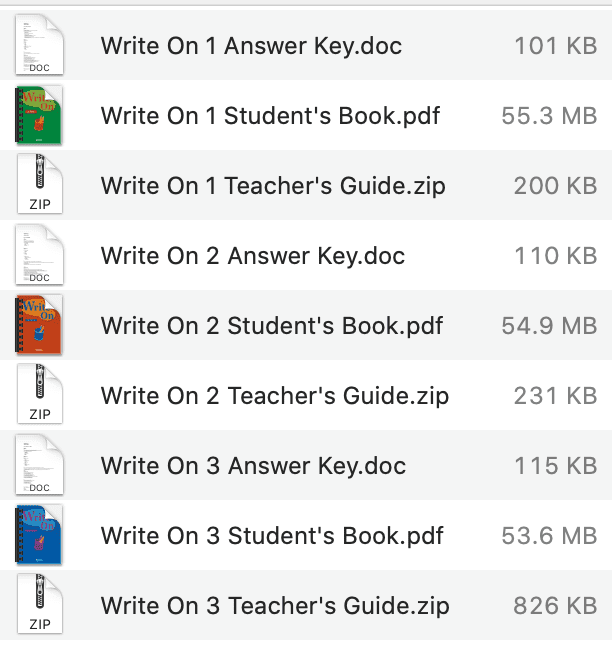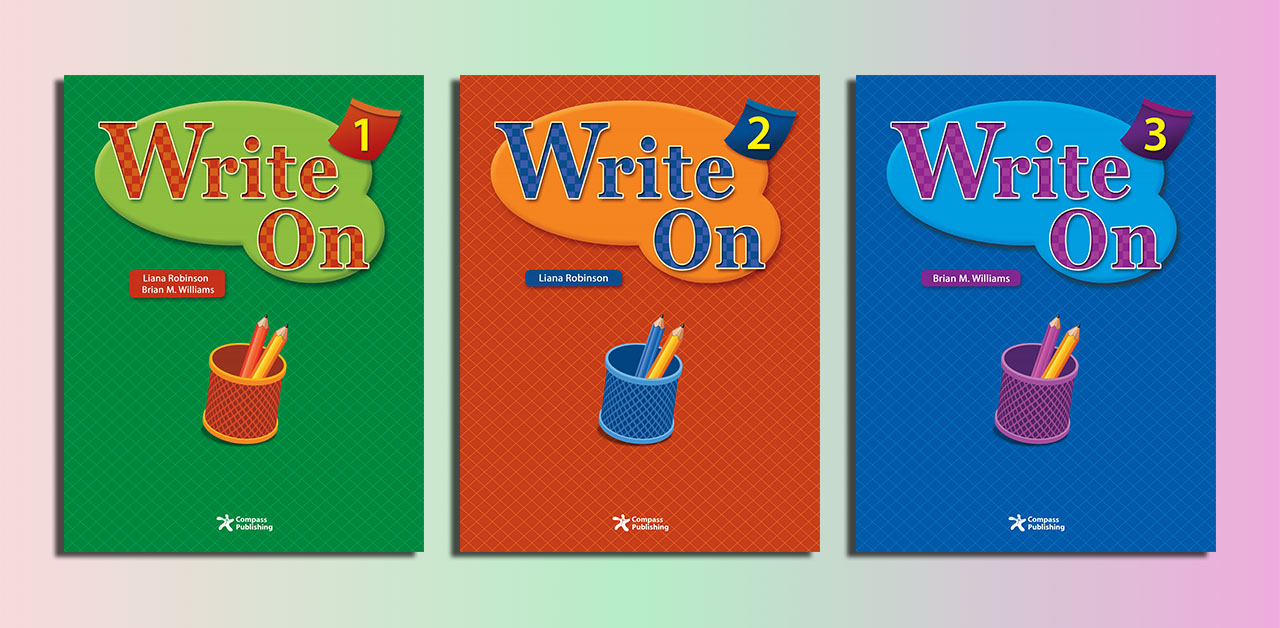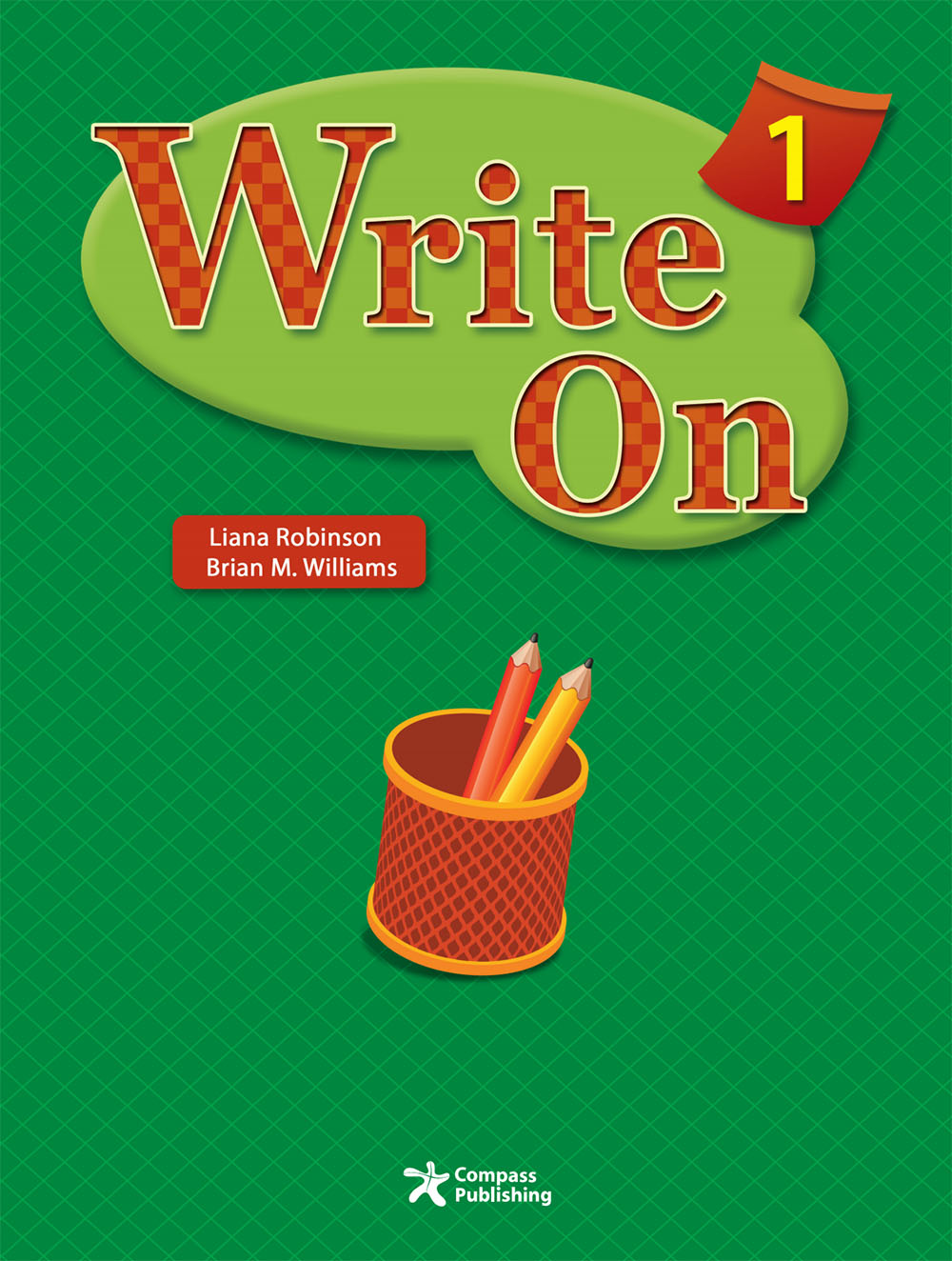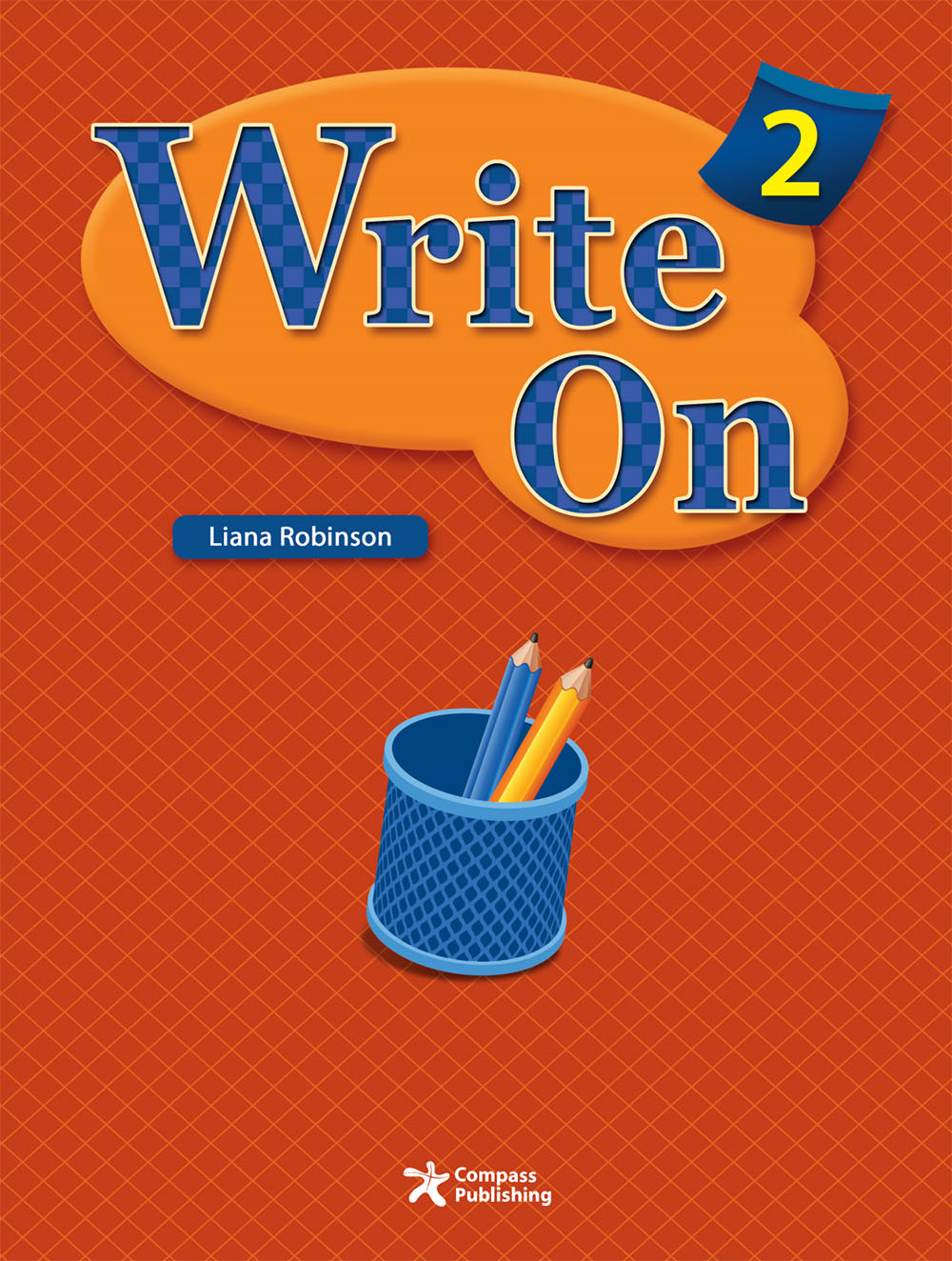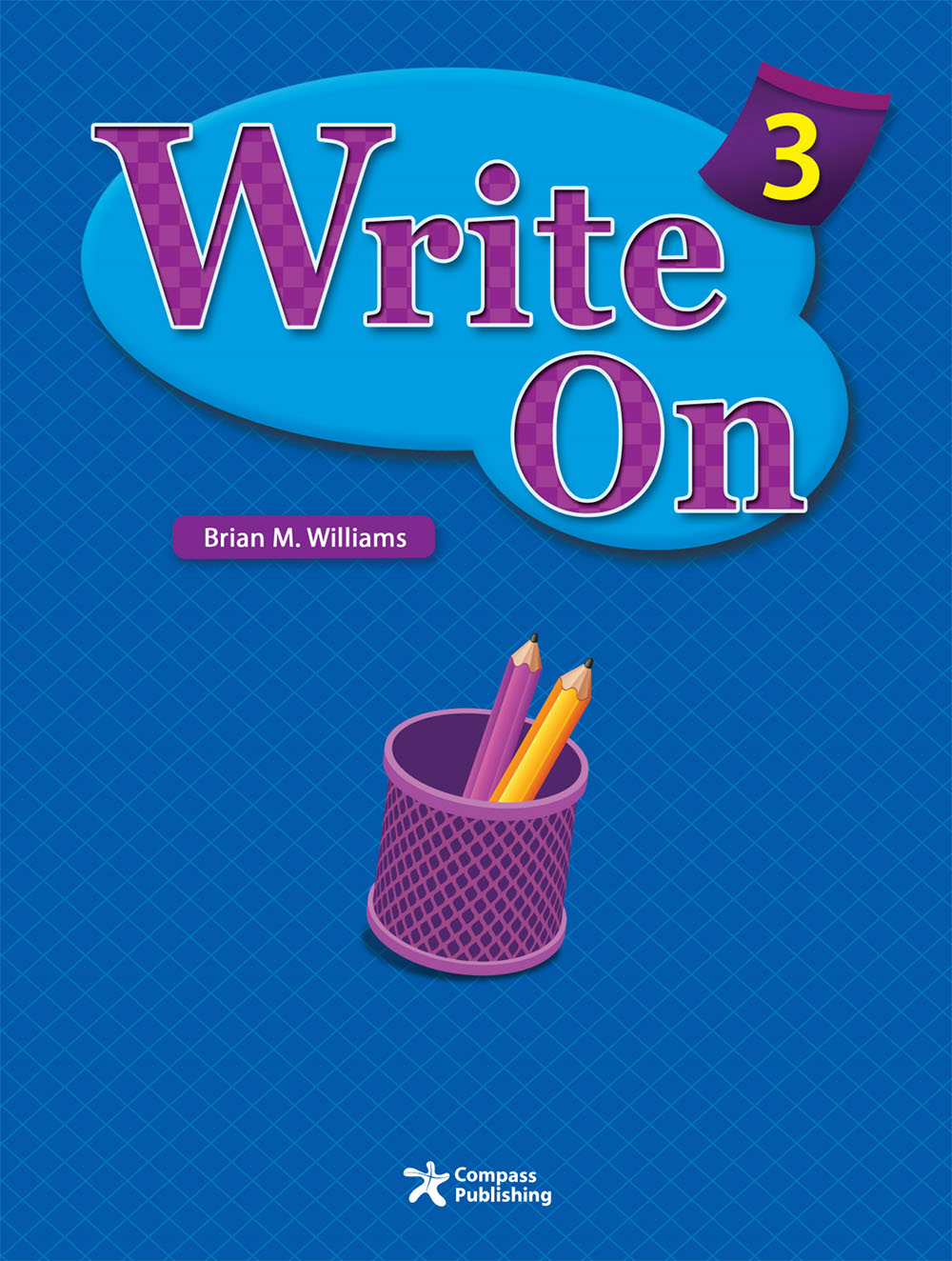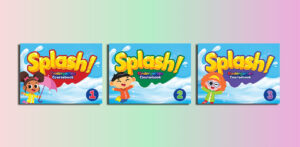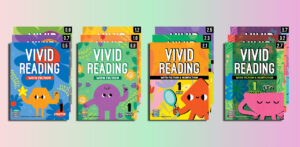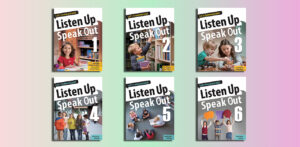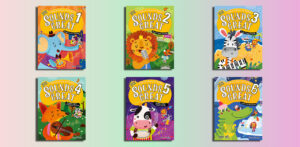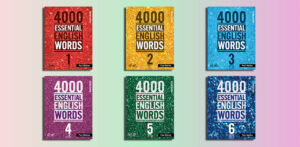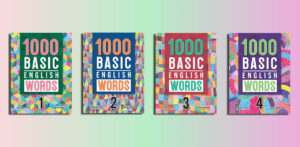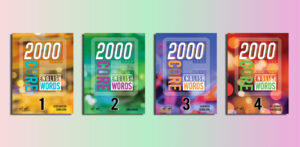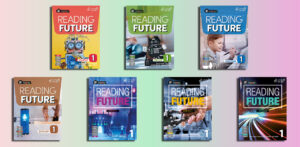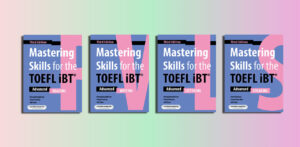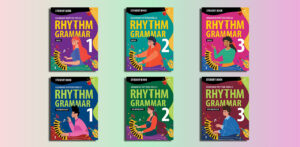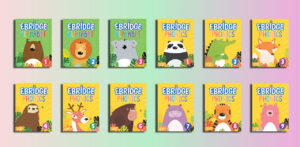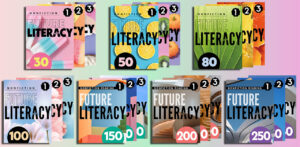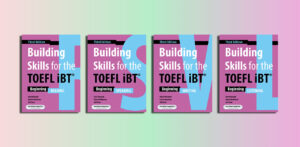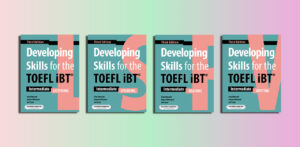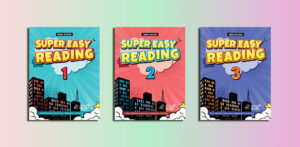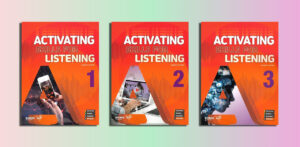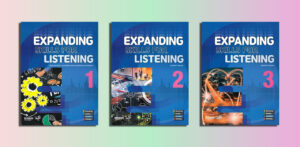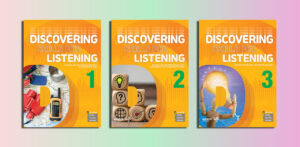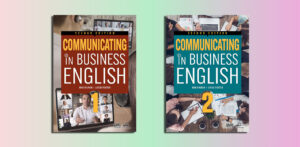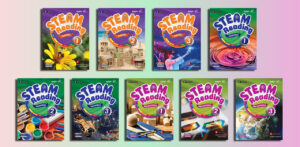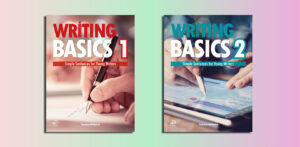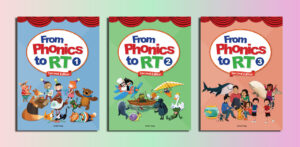Write On (PDFs, Resources)
Level 1 (A2+)
Write On 1 Answer Key.doc
Write On 1 Student’s Book.pdf – Sample: Click
Write On 1 Teacher’s Guide.zip
Level 2 (A2+ / B1)
Write On 2 Answer Key.doc
Write On 2 Student’s Book.pdf – Sample: Click
Write On 2 Teacher’s Guide.zip
Level 3 (B1)
Write On 3 Answer Key.doc
Write On 3 Student’s Book.pdf – Sample: Click
Write On 3 Teacher’s Guide.zip
| Name | Price | Buy |
|---|---|---|
| Write On - Level 1 (PDFs, Resources) | $5 | |
| Write On - Level 2 (PDFs, Resources) | $5 | |
| Write On - Level 3 (PDFs, Resources) | $5 | |
| Write On - All 3 Levels (PDFs, Resources) | $12 |
Overview of “Write On” by Compass Publishing
Contents
| ✅ Coursebook: | Write On |
| ✅ Publisher: | Compass Publishing |
| ✅ Levels: | A2, B1 |
| ✅ English type: | International English |
| ✅ For: | Writing |
| ✅ Publication year: | 2013 |
Write On is a three-level EFL (English as a Foreign Language) writing series published by Compass Publishing, designed to help intermediate-level students develop their writing skills through structured practice in a variety of genres and styles. The series emphasizes step-by-step guidance to build confidence in organizing ideas, using clear language, and producing coherent paragraphs and essays. It is particularly suited for classroom use in ESL/EFL settings, with each book containing approximately 104 pages (210 x 278 mm format) and including online teaching resources for instructors.
Key Features
- Progressive Structure: Each unit focuses on specific writing objectives, starting with model texts (e.g., paragraphs or short essays) followed by guided exercises to analyze structure, vocabulary, and grammar. Students then apply these skills in controlled writing tasks and freer practice assignments.
- Diverse Topics and Styles: Covers everyday and academic themes, including narrative, descriptive, opinion, and process writing, to expose learners to real-world applications.
- Skill-Building Tools: Includes clear language models, peer review prompts, and self-editing checklists to foster independence.
Write On 1 Student’s Book
Who is suitable for “Write On”?
The “Write On” series by Compass Publishing is primarily designed for intermediate EFL (English as a Foreign Language) students who want to build foundational to more advanced writing skills through guided practice. It’s ideal for learners seeking step-by-step support in structuring paragraphs, essays, and various writing styles, such as descriptive, narrative, and opinion pieces.
Key Suitability Factors
- Proficiency Level: Aligned with CEFR levels A2+ to B1, making it appropriate for those who have basic English knowledge but need to refine their writing for coherence, organization, and vocabulary use. Beginners (below A2) may find it challenging, while advanced learners (B2+) might seek more complex materials.
- Age and Educational Context: Best suited for teenagers and young adults, such as high school students or early university learners in EFL settings. It’s versatile for classroom instruction, where teachers can use the accompanying resources, or self-study for motivated individuals. The series emphasizes practical, real-world writing tasks, which appeals to those preparing for academic or everyday English use.
- Learner Goals: Perfect for students aiming to overcome writing anxiety, improve grammar in context, and gain confidence in producing clear, structured texts. It’s not geared toward native speakers or those focusing solely on creative writing without EFL support.
Overall, if you’re an intermediate EFL learner looking for a structured path to better writing, this series fits well.
Write On 2 Student’s Book
The benefits of “Write On”
The “Write On” series is a valuable resource for intermediate EFL students, offering a structured approach to developing writing proficiency. Below, I’ll outline the key benefits based on its design and features, which emphasize practical skill-building and confidence enhancement.
1. Diverse Writing Practice
- The series exposes students to a wide variety of writing topics and styles, including narrative, descriptive, and opinion-based writing. This variety helps learners apply English in real-world contexts, making writing more engaging and relevant.
- Benefit: Students gain versatility in expressing ideas, reducing monotony and improving overall adaptability in English communication.
2. Clear Objectives and Guidance
- Each book provides explicit language and writing skill objectives, paired with model paragraphs that demonstrate effective structure and vocabulary use.
- Benefit: This clarity reduces writing anxiety for non-native speakers, allowing them to focus on improvement rather than guessing requirements. It fosters a step-by-step learning process that builds foundational skills progressively across the three levels.
3. Structured and Guided Tasks
- Features guided writing tasks and additional assignments in the student books, which scaffold the writing process from analysis to independent creation.
- Benefit: Learners develop coherence, organization, and creative thinking, leading to measurable improvements in writing quality and fluency. This is particularly helpful for intermediate students (CEFR A2+ to B1) transitioning to more complex compositions.
4. Teacher and Classroom Support
- Accompanied by online teaching materials, including resources for instructors to facilitate lessons effectively.
- Benefit: Enhances classroom dynamics, enabling peer reviews and targeted feedback, which accelerates skill development in group settings.
5. Overall Skill Enhancement
- The series supports any writer at various levels with clear explanations and focused strategies, as highlighted in Compass Publishing’s materials.
- Benefit: Users report reduced hesitation in writing, better creative expression, and preparation for academic or everyday English needs. While specific user reviews for “Write On” are limited, the publisher’s writing resources generally receive high ratings (e.g., 4.95/5 on platforms like Teachers Pay Teachers for similar products).
In summary, “Write On” stands out for its practical, learner-centered design that turns writing from a challenge into an achievable skill, making it a strong choice for EFL classrooms or self-study.
Write On 3 Student’s Book
Effective learning strategies for “Write On”
The “Write On” series by Compass Publishing is built around structured, guided writing practice, making it ideal for intermediate EFL learners to build confidence and skills progressively. Below are effective strategies to maximize its benefits, drawn from the series’ features like model paragraphs, guided tasks, and clear objectives. These can be adapted for self-study or classroom use.
1. Follow a Scaffolded Approach
- Begin each unit by carefully studying the model paragraphs to understand structure, vocabulary, and grammar in context. Then, complete the guided writing tasks to apply these elements step-by-step before tackling freer assignments.
- Tip: Break down the process—outline ideas first, draft, then revise. This reduces overwhelm and mirrors the series’ progressive design, helping learners transition from controlled to independent writing.
2. Set Clear Goals and Track Progress
- Align with the series’ explicit language and writing skill objectives for each unit. Before starting, note what you aim to improve (e.g., coherence or vocabulary variety) and reflect after completing tasks.
- Tip: Use self-assessment checklists or journals to evaluate drafts against the objectives. For teachers, incorporate the online teaching materials for progress tracking and customized feedback.
3. Incorporate Variety and Real-World Application
- Leverage the wide range of topics and styles (e.g., descriptive, narrative) to practice diverse writing. Extend learning by relating units to personal experiences or current events.
- Tip: After guided tasks, create additional pieces on similar themes outside the book, such as blog posts or emails, to reinforce skills in authentic contexts.
4. Engage in Collaborative and Peer Activities
- Use the additional writing assignments for group work, like peer reviews where learners exchange drafts and provide feedback based on unit objectives.
- Tip: In classrooms, role-play as “editors” to discuss improvements, fostering discussion and critical thinking. For self-learners, join online EFL forums to share work.
5. Supplement with Teacher Resources and Repetition
- Access the online teaching materials for extra worksheets, answer keys, or extension activities to deepen practice.
- Tip: Review challenging units multiple times, rewriting paragraphs with variations to build fluency. Combine with other Compass resources, like grammar series, for integrated skill development.

